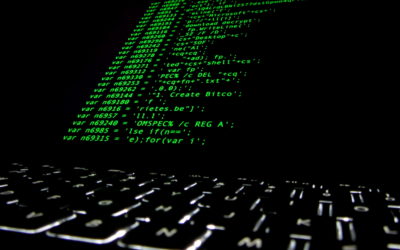More than 86 million Americans use the social media app TikTok to create, share, and view short videos, featuring everything from cute animals and influencer advice to comedy and dance performances.
Concerned experts point out that TikTok’s parent company, the Beijing-based ByteDance, has been accused of working with the Chinese government to censor content and could also collect sensitive data on users.
The Concept of Deterrence and Its Applicability in the Cyber Domain
The Concept of Deterrence and Its Applicability in the Cyber Domain
The Concept of Deterrence and Its Applicability in the Cyber Domain
Abstract
Cyberspace as the fifth domain is omnipresent, and all developed states increasingly realize that international relations and typical domains of statehood change in the face of global digitization. With the advent of game-changing technologies, traditional statecraft tools, such as deterrence, seem disregarded as outdated in the national security strategy building process. Advanced states, in particular, depend heavily on an open and safe cyber domain but, at the same time, suffer from manifold vulnerabilities. The recent past showed that sophisticated cyberattacks have the potential to disrupt governments, economies, and societies significantly
and therefore pose a threat to core security interests. As a classical tool in international relations, deterrence can help bolster national security interests, even if the cyber domain requires some special considerations. Therefore, the article explains the basic mechanisms of deterrence in the nuclear age and contemporary international relations, cyberspace’s legal framework, and possible ways to apply deterrence in the cyber domain. It aims to urge global leaders to thoroughly consider deterrence in the cyber domain as a powerful asset and to provide policymakers with options for action.
Introduction
Speaking about deterrence in the 21st century feels like excavating remnants of a bygone era. With the advent of nuclear technologies and mainly during the Cold war, deterrence was a topic not only for politicians and academia but also shaped the daily lives of millions, no matter which side of the ‘blocks’ they belonged to. Since then, deterrence diminished its presence in the public perception together with the nuclear arsenals of the great powers. What remains is still of enormous potential but as a tool of statecraft rather than a placeholder.
Especially states face the gradual change of the traditionally state-centered setting of the international system, particularly in habitual domains of statehood, like security. The classical understanding of war and conflict blurs and the traditional state structures seem to be overstrained to respond with the classical tools, as the new type of conflict is multilayered (political, military, and economic, among others), conducted mostly by non-military means like propaganda and political agitation and amongst diverse state and non-state actors.
In the face of daily and continuing attacks on governments and their organs, the question persists: What keeps an actor in the cyber domain from carrying out the same attacks over and over again, or even climbing up the escalation ladder and causing irreversible harm, if it serves his interests. There seems to be no respect, no fear of retaliation, and no serious technical barriers in the cyber domain – or in other words, no deterrence.
This article will survey if the concept of deterrence is only effective if it is tied to nuclear weaponry and if it becomes useless in a no longer (purely) nuclear but cyber-dominated international system. The author claims that this is not the case. Even in the cyber age, deterrence can be a powerful tool of statecraft and could contribute to the protection of state’s national security interests. To prove this hypothesis, this article will scrutinize the concept of deterrence by looking into the past that generated manifold experiences on that topic, to finally project the findings into present times. Therefore, existing concepts of deterrence and special implications of the cyber arena, together with the legal framework of the ever more digitized international system, will be examined to finally find effective ways to apply deterrence in cyber space.
This excerpt was republished under a Creative Commons license to point warfighters and national security professionals to reputable and relevant war studies literature. Read the original article here.

Manuel Fischer is a security professional, working in the German defense sector with focus on counter-UAS Solutions. He looks back on twelve years of service in the German military (Bundeswehr) as a military police officer. During this time he acquired a Master of Science in Economics and Organizational Science from the University of the Federal Armed Forces in Munich. His service in the military was followed by his studies at the George C. Marshall European Center for Security Studies where he graduated its Master’s program of International Security Studies concentrating on cyber security. E-mail: fischermanuel@web.de.
Related Articles
Pentagon leaks suggest China developing ways to attack satellites – here’s how they might work
The recent leak of Pentagon documents included the suggestion that China is developing sophisticated cyber attacks for the purpose of disrupting military communication satellites. While this is unconfirmed, it is certainly possible, as many sovereign nations and private companies have considered how to protect from signal interference.
Ransomware Attack Hits Marinette Marine Shipyard, Results in Short-Term Delay of Frigate, Freedom LCS Construction
The Wisconsin shipyard that builds the U.S. Navy’s Freedom-class Littoral Combat Ship and the Constellation-class guided-missile frigate suffered a ransomware attack last week that delayed production across the shipyard, USNI News has learned.
Fincantieri Marinette Marine experienced the attack in the early morning hours of April 12, when large chunks of data on the shipyard’s network servers were rendered unusable by an unknown professional group, two sources familiar with a Navy summary of the attack told USNI News on Thursday.



